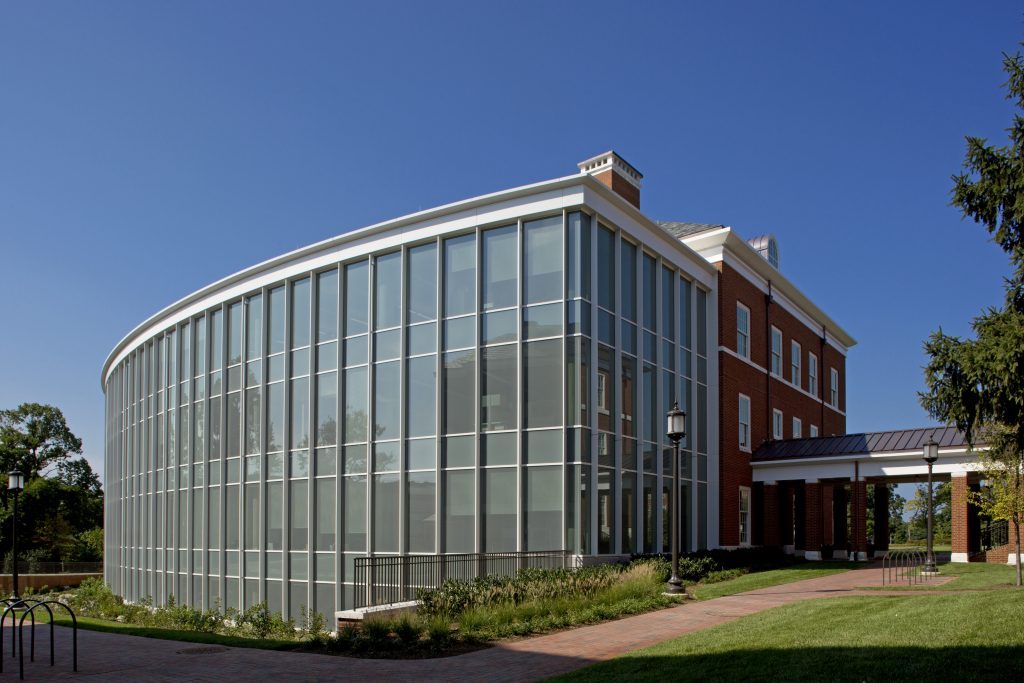The Malone Center for Engineering in Healthcare (MCEH) recently awarded two grants through the center’s Seed Grant Program, which aims to help faculty compete more successfully for interdisciplinary, multi-investigator grants.
One newly awarded project will explore how artificial intelligence can predict glaucoma risk; the other aims to measure how elderly patients benefit from physical activity prior to surgery.
“Our Seed Grant Program is designed to jump-start collaborations that will expand on the immense potential for engineering to positively impact the effectiveness and efficiency of healthcare, ” said MCEH Director Greg Hager. “This cycle’s funded projects highlight two areas central to the Malone Center – AI and mobile health – and do so in the high value areas of rehabilitation and ophthalmology. We hope that these seedlings will grow and mature into larger and broader joint initiatives in these areas.”
Established in 2018, the MCEH Seed Grant Program has supported projects focused on spine surgery, cardiac surgery, and hand rehabilitation after stroke. Two of the projects have submitted proposals to the NIH for additional funding.
The 2019 funded projects are:
Predicting Glaucoma Risk Using Artificial Intelligence (AI)
Mathias Unberath, Assistant Research Professor, Department of Computer Science
Jithin Yohannan, MD, MPH, Assistant Professor of Ophthalmology, Johns Hopkins Wilmer Eye Institute
Glaucoma is the second leading cause of blindness globally, with approximately 79.6 million people expected to be affected by the disease by 2020. A small subset of glaucoma patients will experience rapid glaucoma worsening that, if untreated, can quickly lead to complete vision loss. Identifying these rapid progressors early is critical for ophthalmologists to perform interventions that can preserve a patient’s eyesight.
Mathias Unberath, MCEH assistant research professor, is teaming up with Hopkins ophthalmologist Jithin Yohannan to explore a data-driven solution to this problem. Unberath will develop machine learning algorithms that can accurately identify patients at risk for undergoing rapid glaucoma progression, based on multimodal clinical data that is acquired as part of routine glaucoma care at Wilmer Eye Institute. To this end, the team plans to aggregate functional, structural and clinical information – automated visual field tests, optical coherence tomography images, and clinical parameters such as intraocular pressure – to better understand the factors that contribute to rapid progression.
“It is exciting to develop this algorithm in close collaboration with its intended end users, our clinical collaborators at Wilmer,” said Unberath. “Not only are we interested in generic measures of performance, but we hope to develop a system that enables ophthalmologists to treat patients with higher confidence and deliver more effective treatments. In a similar effort, Wilmer has recently established the Wilmer Artificial Intelligence Research Network with ties to the Malone Center, and we are excited to be among the first collaborations to reinforce this network.”
Enhancing Mobility in Geriatric Patients Prior to Major Surgery
Anton Dahbura, Associate Research Scientist, Department of Computer Science
Erik Hoyer, MD, School of Medicine, Department of Physical Medicine & Rehabilitation
Daniel Young, PT, DPT, PhD, School of Medicine, Department of Physical Medicine & Rehabilitation
Older adults are highly susceptible to postoperative complications following major surgery. A growing body of research shows that physical conditioning prior to surgery, often called “prehabilitation,” can provide significant benefit to patients, including reduced complications, shorter recoveries, and lower costs. However, tools to measure the effectiveness of prehabilitation are currently lacking.
Anton Dahbura, MCEH associate research professor, is looking to wearable technology for new insights on the benefits of prehabilitation. His team has developed a platform that can collect data from wearable activity monitors and display feedback to patients on their smartphones. By continuously monitoring patient activity with wearable devices, the team hopes to apply analytics to determine the true relationship between pre-surgery activity levels and surgical outcomes.
In collaboration with Erik Hoyer and Daniel Young in the Department of Physical Medicine & Rehabilitation, Dahbura will conduct an initial study focused on older adults (over the age of 65) who are preparing for major abdominal colorectal surgery.
“Surgery is expensive and high risk, especially for geriatric patients,” said Dahbura. “This study will revolutionize our ability to motivate and direct these patients during pre-surgical preparation with targeted, effective prehabilitation prescriptions.”
*Malone Center Seed Grant applications are accepted on a rolling basis. All Malone Center faculty, as well as outside researchers interested in collaborating with Malone faculty, are encouraged to apply. For more information, visit https://malonecenter.jhu.edu/seed-grant-program/
